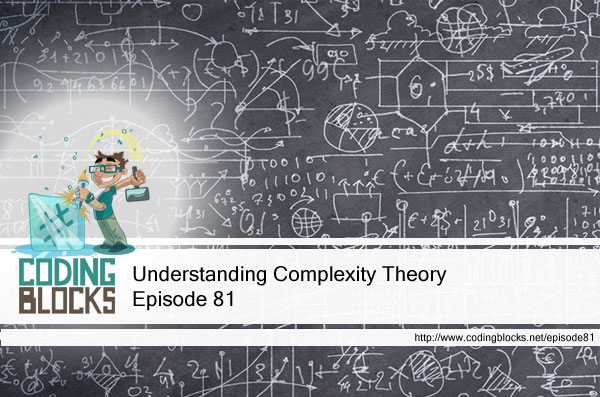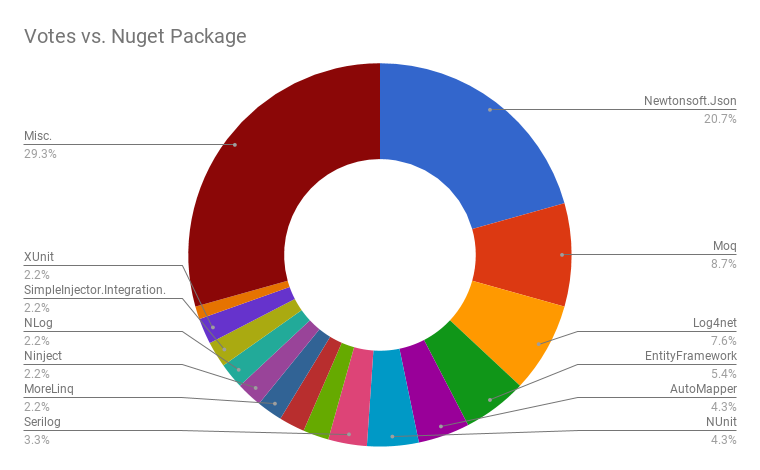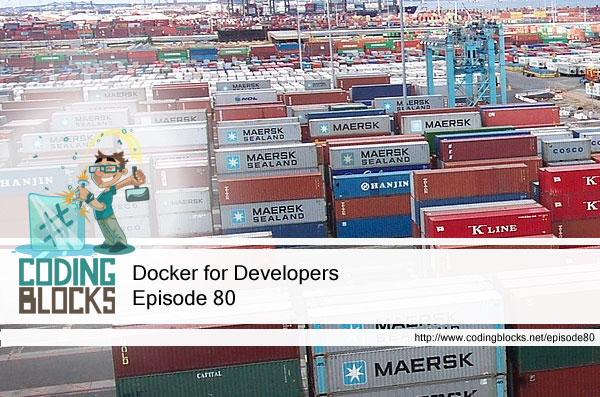Join us on the second Community Talk, focusing on Cross-Platform Development.
Contest Details:
Sorry, the contest is now closed

Podcast: Play in new window | Download
Subscribe: Apple Podcasts | Spotify | TuneIn | RSS
We’re talking databases, indexes, search engines, and why they’re basically microwaves in this episode while Joe wears a polo, Allen’s quick brown fox jumps over whatever, and Michael gives out fake URLs.

Podcast: Play in new window | Download
Subscribe: Apple Podcasts | Spotify | TuneIn | RSS
Inspired by Rob Conery’s The Imposter’s Handbook, we take an introspective look at ourselves to find two weaknesses and one strength while Allen shows off his vocal prowess in song, Joe needs a list, and Michael is a dash. [Read more…]

Podcast: Play in new window | Download
Subscribe: Apple Podcasts | Spotify | TuneIn | RSS
This episode we talk complexity theory while digging into Rob Conery’s The Imposter’s Handbook as Allen channels his inner Austin Powers, Michael finds linearly too complex to pronounce, and Joe ruins Batman for the rest of us.
When we discussed development workflows on the recent Docker for Developers episode, I mentioned that I had a frustrating time trying to come up with a workflow that I felt comfortable with.
I figured I either had to rebuild my code inside of a container (yuck!) via command line, or kill the container and rebuild it.
It turns out that the second option actually works out pretty well. Docker Compose is smart about only spinning up the items that are necessary, and the Layered Filesystem keeps rebuilds fast.
I finally got around to looking at Visual Studio’s support for docker, and it’s really snazzy! Not only was it a nice, integrated experience, but it was also really easy for me to see how it worked. If only I had started out this way, I could have saved myself some aspirin!
Check out the quick video below:
We graphed the results of our recent contest for Practical Test-Driven Development using C# 7 and thought you might be interested in the results! This wasn’t a scientific survey, so take these results with a grain of salt.

What is your favorite Nuget Package?
Want to participate in contests like this in the future? Join the mailing list!
Huge thanks to John Callaway and Clayton Hunt for sponsoring the giveaway, go check out their podcast: The 6 Figure Developer.

Podcast: Play in new window | Download
Subscribe: Apple Podcasts | Spotify | TuneIn | RSS
This episode we’re talking about server naming conventions, confusing command line arguments, and how high we can get our voices. Huge thanks to the NSA and the freedom of information act for making this episode possible.
The Coding Blocks slack has been the best thing to fall out of this crazy podcast that we do. We are constantly humbled, and learning new things from this global community, and it’s high time that we stop hogging the mic!
Huge thank you to all participants, we are really happy with how things have turned out and we are looking forward to more things to come in the future. Big thanks to Andrew and Sean for pushing us to make this happen, and an extra special thanks to Sean for moderating!
We took a lot of inspiration for the format from the Productive Developers Podcast discussions as well, so make sure to check it out if you enjoy this sort of thing: Productivity in Tech on YouTube
So, without further ado – Welcome to the first Coding Blocks Community Talk!
[Read more…]

Podcast: Play in new window | Download
Subscribe: Apple Podcasts | Spotify | TuneIn | RSS
It’s time for more Ant-EYE or Ant-EEE design patterns as we venture into object cesspool that awaits. Come find out what these patterns are and how to avoid them. Bonus: Michael drops the term Heinz Doofenshmirtz – Joe and Allen didn’t know this pattern, but maybe you will.
Git is currently the default choice for source control. We may take that for granted today, but it was not always a clear winner. Mercurial was a serious contender for the DVCS crown, but perhaps the fiercest competition came from the status quo.
Some of the arguments that I am hearing about Docker today remind me of the arguments against Git in 2010 while it was rocketing towards ubiquity.
Arguments like…
The heart of these arguments is the same:
“It solves a problem that I don’t have”
[Read more…]
